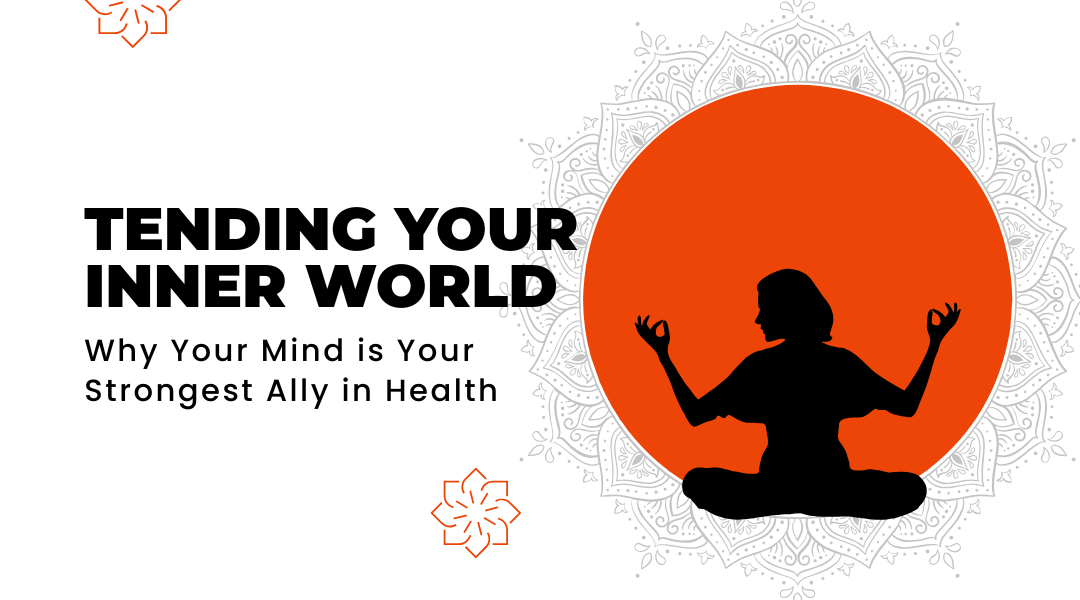In the quest for physical health, we often focus on the tangible—food, exercise, medical screenings. Yet, we tend to neglect the most influential system of all: our mental and emotional landscape. Chronic stress isn’t just a feeling; it’s a physiological event that can suppress immune function, disrupt hormonal balance, and create an internal environment where illness can more easily take hold. Cultivating mental wellness, therefore, is not about achieving a state of perpetual happiness. It’s about building resilience—the capacity to navigate life’s inevitable storms without letting them erode your physical foundation.
Part 1: The Art of Decompression – Short-Circuiting the Stress Cycle
When stress hits, our bodies enter a “fight or flight” mode, a primitive response ill-suited for modern-day pressures. The key is to develop practices that consciously signal safety to your nervous system, moving it back into a “rest and digest” state.
- The Pause Button: Instead of seeing meditation as a complex spiritual practice, think of it as a simple pause button. It can be as straightforward as stopping for two minutes to focus only on the feeling of your feet on the floor. This act of anchoring your attention in the present moment interrupts the frantic narrative of worry in your head, dialing down the production of stress hormones like cortisol.
- Breath as an Anchor: Your breath is a remote control for your nervous system. When anxiety rises, try “box breathing”: inhale slowly for a count of four, hold for four, exhale for four, and hold empty for four. This simple technique forces a physiological shift away from panic and toward calm.
- Movement as Release: Stress often manifests as physical tension—tight shoulders, a clenched jaw. Gentle, mindful movement like a restorative yoga class or even a quiet walk in nature helps to literally shake off that stored tension. It’s a way of telling your body, through action, that the threat has passed.
Part 2: The Architecture of Resilience – Building a Sustainably Healthy Mindset
Managing acute stress is crucial, but true wellness comes from designing a lifestyle that naturally buffers you against it. This is about proactive building, not reactive coping.
- The Sanctuary of Sleep: Prioritizing 7-8 hours of quality sleep is the cornerstone of mental resilience. This isn’t just downtime; it’s when your brain actively repairs itself, processes emotions, and solidifies memories. A well-rested brain is simply better equipped to handle challenges with perspective and patience.
- Curate Your Inner Circle: Your mental environment is shaped by the people you allow into it. Setting boundaries isn’t about being rude; it’s about being selective. This also applies to your digital life. A nightly “digital sunset,” where you turn off screens an hour before bed, can dramatically reduce mental clutter and improve sleep quality.
- The Power of Purposeful Engagement: Passive consumption (like scrolling through social media) drains energy. Active creation restores it. Carve out time for activities that absorb you completely—whether it’s woodworking, learning a new language, or volunteering. This state of “flow” is a powerful antidote to anxiety and a profound source of fulfillment.
Part 3: The Courage to Connect – Knowing When to Seek Support
Perhaps the most overlooked aspect of mental wellness is the wisdom to recognize when we need help. Viewing therapy as a resource for building skills, not just a treatment for crisis, is a sign of strength.
A therapist acts as a trained guide, helping you identify unhelpful thought patterns, develop healthier coping mechanisms, and process past experiences that may be weighing on you. It’s a proactive investment in your emotional toolkit, ensuring you have the resources to handle whatever comes your way.
The Final Perspective: An Integrated Approach to Health
True health is an inside-out process. A peaceful mind directly supports a healthy body by fostering balanced hormones, a vigilant immune system, and lower inflammation. The practices of mental wellness—whether it’s a few minutes of mindful breathing, a tough but necessary conversation to set a boundary, or an hour spent on a beloved hobby—are not indulgences. They are essential, non-negotiable maintenance for the most complex and critical system you possess. By tending to your inner world with the same care you give your physical body, you build a foundation of wellness that is both deep and enduring.
